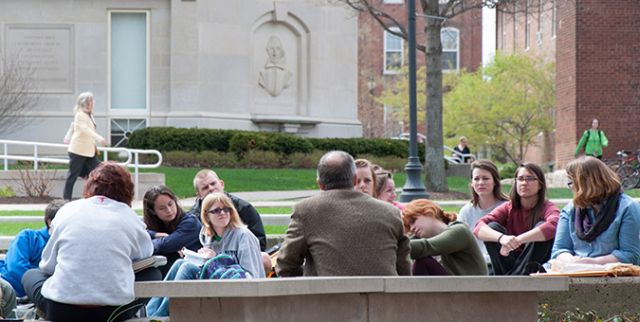
Philosophy Faculty Publications
Reviews: 'Democracy and Social Ethics' and 'The Long Road of Woman's Memory'
Document Type
Book Review
Publication Date
2004
Publication Source
Journal of Speculative Philosophy
Abstract
Scholars from fourteen different disciplines responded to the call for papers for the University of Dayton's November 2002 colloquium "Exploring Jane Addams." These scholars had to rely for the most part on old, dusty editions of Addams's works, courtesy of interlibrary loan. Interest in Addams is high, so the University of Illinois Press's reissuing in 2002 of Democracy and Social Ethics (1902) and The Long Road of Woman's Memory (1916) is timely and most welcome. Charlene Haddock Seigfried's introductions are particularly valuable, demonstrating in rich detail Addams's use of pragmatist methodology.
Addams's thesis in Democracy and Social Ethics is that, given the highly interdependent, industrial character of society, moral goodness can no longer be attained through individual efforts alone; systemic, social change is also needed. Our ethics need to move from "individual morality" to "social morality," or democracy. Addams is eloquent in explaining the experiential path toward social morality: "We are learning that a standard of social ethics is not attained by travelling [sic] a sequestered byway, but by mixing on the thronged and common road where all must turn out for one another, and at least see the size of one another's burdens.
To follow the path of social morality results, perforce in the temper if not the practice of the democratic spirit, for it implies that diversified human experience and resultant sympathy which are the foundation and guarantee of Democracy" (7).
In each chapter Addams presents a "perplexity." She examines methods of dispensing charity and philanthropy, attempts to reform political corruption, calls by unions for workplace justice, family and domestic tensions, and difficulties in designing appropriate education for immigrants and their children. With each perplexity, relations of hierarchical authority, as typical of individual ethics, bar satisfactory resolution. Addams advocates replacing hierarchy with democracy, defined as a way of associating with others through concrete experience and sympathetic understanding. Under social morality, previously hierarchical relations are adjusted into democratic ones, characterized by equality, reciprocity, and full participation of all parties.
In The Long Road of Woman's Memory, Addams gives her interpretation of two dynamic functions of memory: "first, its important role in interpreting and appeasing life for the individual, and second its activity as a selective agency in social reorganization" (5). She presents the first function through an extended discussion of the devil baby rumored to be held at Hull House in the summer of 1915. By the time word appeared in the papers, thousands had already stopped by to view it. Rather than disregardingthe myth as a crude superstition of her uneducated, immigrant neighbors, Addams uses the occasion to gather stories. Most eager to see the baby were old, immigrant women. The myth loosened their tongues and they recounted to Addams their life stories of incredible suffering and abuse. Yet they were not bitter. Facilitated by the ancient tale, which memories from the distant past had created, the women's memories softened harsh reality, reconciling these women to life. Yet working with stories from other women, Addams found that memory does not always lead to acceptance. Sometimes it disturbs conventional wisdom, giving women the strength to oppose oppressive social conditions. Addams illustrates this reconstructive function of memory with examples of women's grassroots support for trade unions, their calls for humane treatment of unmarried mothers and their children, and women's opposition to war.
Inclusive pages
85-88
ISBN/ISSN
0891-625X
Copyright
Copyright © 2004, Pennsylvania State University
Publisher
Pennsylvania State University Press
Volume
18
Issue
1
eCommons Citation
Fischer, Marilyn, "Reviews: 'Democracy and Social Ethics' and 'The Long Road of Woman's Memory'" (2004). Philosophy Faculty Publications. 119.
https://ecommons.udayton.edu/phl_fac_pub/119
COinS



Comments
Permission documentation is on file.
Citation information for the books reviewed:
Democracy and Social Ethics. Jane Addams. Introduction by Charlene Haddock Seigfried. Urbana: University of Illinois Press, 2002.
The Long Road of Woman's Memory. Jane Addams. Introduction by Charlene Haddock Seigfried. Urbana: University of Illinois Press, 2002.